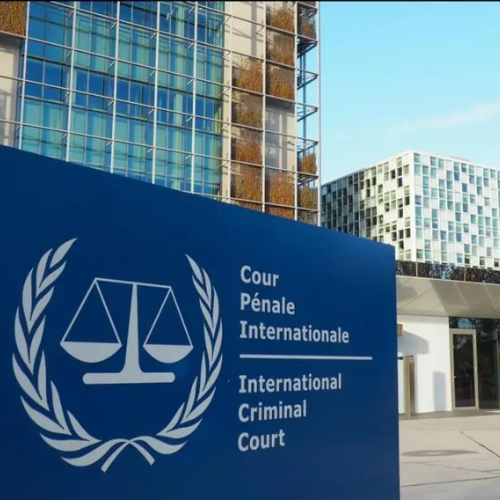The International Criminal Court (ICC) is a unique and powerful organization created to hold individuals accountable for the most serious crimes known to humanity. Despite its noble mission, the ICC has faced significant criticism and controversy, including sanctions from U.S. President Donald Trump.
What is the International Criminal Court and Why Was It Created?
The International Criminal Court, is the world’s only permanent court dedicated to prosecuting individuals accused of the gravest crimes, such as genocide, war crimes, crimes against humanity, and crimes of aggression. It was established in 2002 in The Hague, Netherlands, after decades of efforts to create a permanent system for holding powerful leaders accountable for atrocities.
The court operates independently from the United Nations and is governed by the Rome Statute, an international treaty signed by 124 countries. These nations, called state parties, have agreed to the court’s jurisdiction and cooperate with it to bring criminals to justice. However, some major powers, including the United States, China, Russia, and Israel, have not signed or ratified the treaty, limiting the ICC’s reach.
Strategic Blow: Trump Ends India’s Chabahar Port Sanctions Waiver
Before the ICC existed, war crimes were handled by temporary tribunals set up for specific conflicts, such as those in Rwanda and the former Yugoslavia. These ad hoc courts were limited in scope and time, leading to a global push for a permanent solution.
How Does the International Criminal Court Work?
The International Criminal Court investigates and prosecutes individuals accused of serious crimes only when national courts are unable or unwilling to do so. For example, if a country’s government protects war criminals or lacks the resources for a fair trial, the ICC can step in. It focuses on holding powerful figures accountable, including military leaders, heads of state, and warlords.
Since its inception, the ICC has handled 32 cases and issued 60 arrest warrants. Notable figures prosecuted include leaders accused of conscripting child soldiers, committing mass killings, or orchestrating torture. However, many of the accused remain fugitives, as the ICC does not have its own police force and relies on member countries to arrest suspects.
The ICC has faced challenges in enforcing its rulings. For instance, some countries, despite being members, have refused to detain suspects. This lack of enforcement has sparked debates about the court’s effectiveness and authority.
Why Did Trump Place Sanctions on the ICC?
The United States has never been a supporter of the International Criminal Court, as it did not sign the Rome Statute. Many U.S. officials believe the court threatens national sovereignty by allowing an international body to prosecute American citizens. This sentiment grew stronger during Trump’s presidency.
US Sanctions Shake India Russia Iran Oil Trade Amid Growing Tensions
In 2020, the ICC announced it could investigate alleged war crimes committed in Afghanistan, including those involving U.S. military personnel. This decision angered Trump, who viewed it as an attack on the United States. In response, he signed an executive order imposing sanctions on ICC officials. These measures included freezing their assets and barring them from entering the U.S.
Trump also criticized the ICC for actions involving other nations, including issuing arrest warrants for leaders of U.S. allies. His administration accused the ICC of being a biased and illegitimate institution, claiming it abused its power to target countries like the U.S. and its allies unfairly.
While Trump’s sanctions marked an extreme stance, they reflected long-standing U.S. opposition to the ICC. Critics of the sanctions argued they undermined international justice, while supporters believed they protected American sovereignty.
The ICC remains a symbol of both hope and controversy. It strives to deliver justice for the world’s worst crimes but faces significant obstacles, including political pushback and limited enforcement capabilities. As the debate over its role continues, the court’s mission of holding individuals accountable for atrocities remains its defining purpose.


